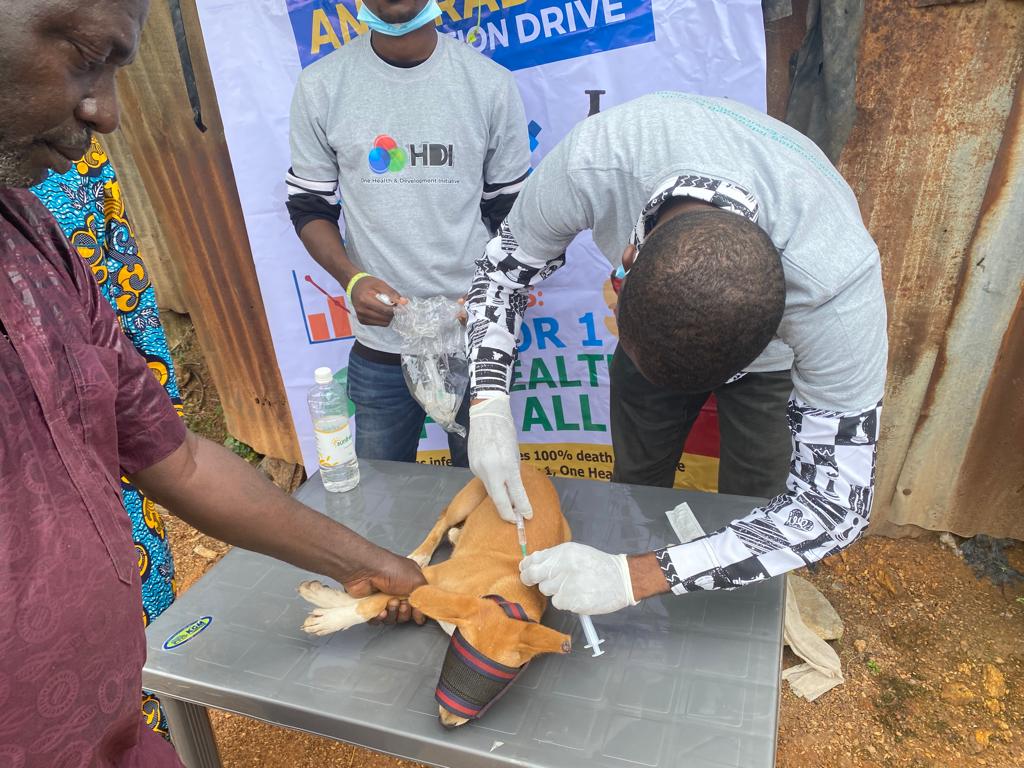
Rabies is one of the major public health threats, and a key One Health challenge. This disease is considered much of concern within the One Health field, because it affects animals that live in close proximity to humans – most of which are pets. In an environment where this disease is endemic, care should be provided to the animals to protect them.
Breaking down rabies to the simplest, rabies virus affects the central nervous system as a result of exposure to saliva of an infected animal. Dogs are commonly associated with the spread of rabies –99% cause of disease transmission to humans, mainly because they are domesticated as pets. On a side note, some other animals such as foxes, and cats can spread rabies to other animals and humans. Humans can also be infected by rabies carried by bats. Therefore, rabies is a great threat to human and environmental health.
Why rabies needs a defeat.
It is said that about 59,000 people die of rabies yearly, the majority of which are in Sub-Saharan Africa. Owing to the severity of this disease, interventions on its prevention, and control avail a chance to retract the deadly potential of this disease.
Are we doing something about Rabies?
As an organisation, we give in on contributing to the fight against rabies, because of our concern for interrelated health elements of people, animals, and the environment. Our contribution is focused on reducing rabies transmission to humans especially by domesticated animals like dogs and cats. Our contribution to cut the 99% rabies transmission by dogs to humans has been possible by community education and administering free anti-rabies shot to dogs in communities. In some instances, this has been accompanied by provision of comprehensive veterinary services to other domesticated animals like goats and sheep.
The community education on rabies conveys how the disease could be contracted, its prevention and control with immediate action that must be employed when there is a dog bite case. These messages are delivered in the local language (Yoruba) of the communities for ease in articulation and understanding.
Results of our Anti-rabies activities.
Since 2022, our community-based free anti-rabies vaccination drives have been conducted in communities where treatment of rabies in the human population would be impossible, with little or no access to veterinary care and services to cater for their animals. Attention to such risk factors moves us to reach communities of such kind. Communities that have benefited from our eliminate rabies project include: Ijaye, Seriki and Ojutaiye communities in Akinyele Local Government Area of Oyo state and Osu community in Atakumosa Local Government Area of Osun state.
Our most recent community-based free anti-rabies activity was held in Fiditi and Ilora communities in Afijio LGA, Oyo state. We were able to vaccinate a total of 61 dogs with the majority (51 pets) vaccinated in Fiditi, and 10 in Ilora. Alongside, 30 puppies and 50 juvenile animals were dewormed. Awareness Education on the zoonotic significance of rabies using a number of IEC materials was also carried out. We were able to distribute 50 brochures to the community people, and made illustrations with the aid of a banner that had rabies-related information. Combined, our community-based anti-rabies vaccination drives makeup administration of Anti-Rabies Vaccines to over 270 pets. We are so grateful to the generous donations of essential utilities such as Anti-Rabies vaccines for dogs that were provided by partners such as the National Veterinary Research Institute (NVRI).
Even though we still have a long way to go in this fight, we must admit that we have covered as well a great deal in limiting its pervasiveness. Having the One Health approach inform the way in which we tackle rabies, the rest of what is left in dealing with rabies is having equally committed parties to the fight against the disease in Nigeria.





